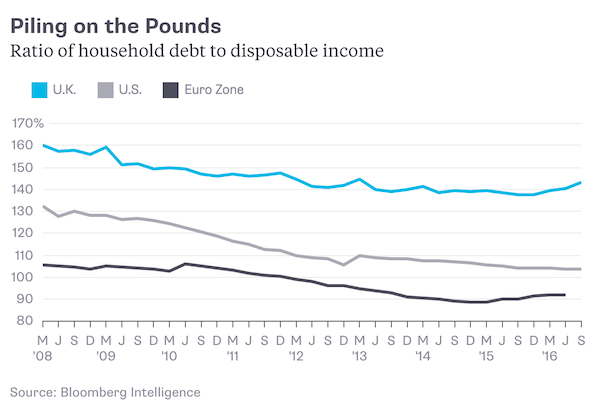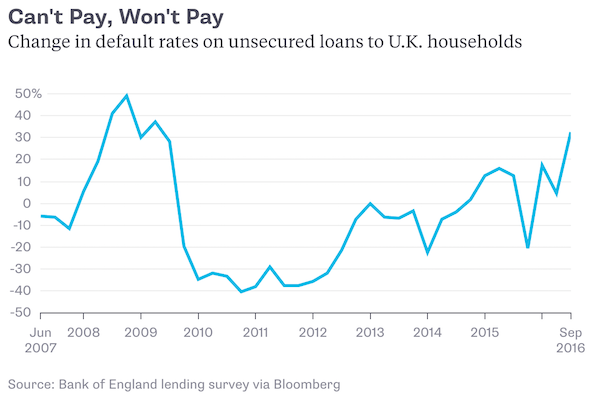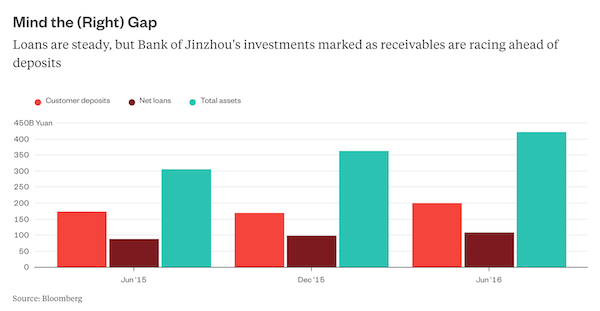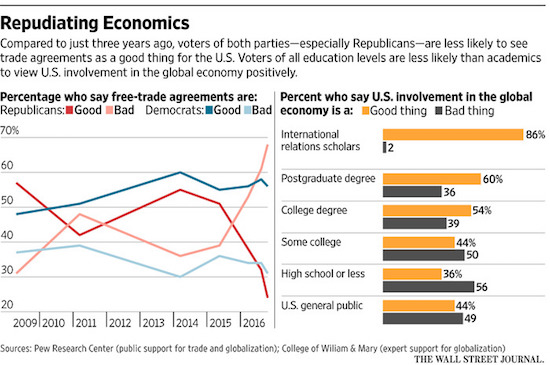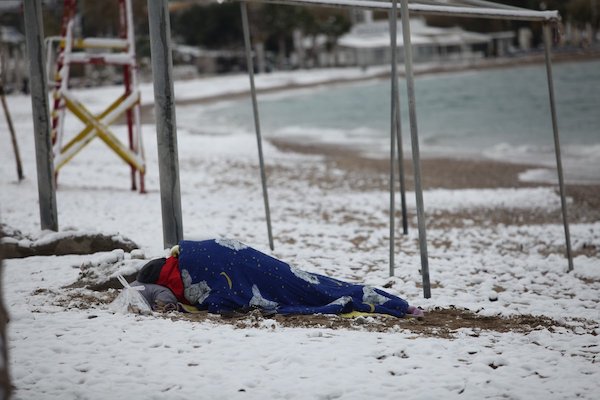
Paul Cézanne Forest 1902-04

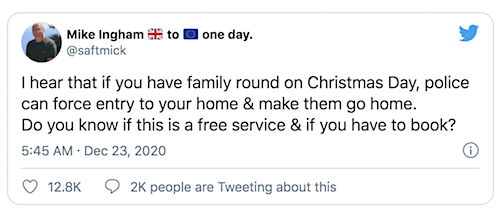

How overrated is asymptomatic transmission, and why do we focus on it so much?
• Asymptomatic Transmission Of COVID19 (BMJ)
The UK’s £100bn “Operation Moonshot” to roll out mass testing for covid-19 to cities and universities around the country raises two key questions. How infectious are people who test positive but have no symptoms? And, what is their contribution to transmission of live virus? Unusually in disease management, a positive test result is the sole criterion for a covid-19 case. Normally, a test is a support for clinical diagnosis, not a substitute. This lack of clinical oversight means we know very little about the proportions of people with positive results who are truly asymptomatic throughout the course of their infection and the proportions who are paucisymptomatic (subclinical), presymptomatic (go on to develop symptoms later), or post-infection (with viral RNA fragments still detectable from an earlier infection).
Earlier estimates that 80% of infections are asymptomatic were too high and have since been revised down to between 17% and 20% of people with infections. Studies estimating this proportion are limited by heterogeneity in case definitions, incomplete symptom assessment, and inadequate retrospective and prospective follow-up of symptoms, however. Around 49% of people initially defined as asymptomatic go on to develop symptoms. It’s also unclear to what extent people with no symptoms transmit SARS-CoV-2. The only test for live virus is viral culture. PCR and lateral flow tests do not distinguish live virus. No test of infection or infectiousness is currently available for routine use. As things stand, a person who tests positive with any kind of test may or may not have an active infection with live virus, and may or may not be infectious.
The relations between viral load, viral shedding, infection, infectiousness, and duration of infectiousness are not well understood. In a recent systematic review, no study was able to culture live virus from symptomatic participants after the ninth day of illness, despite persistently high viral loads in quantitative PCR diagnostic tests. However, cycle threshold (Ct) values from PCR tests are not direct measures of viral load and are subject to error. While viral load seems to be similar in people with and without symptoms, the presence of RNA does not necessarily represent transmissible live virus. The duration of viral RNA shedding (interval between first and last positive PCR result for any sample) is shorter in people who remain asymptomatic, so they are probably less infectious than people who develop symptoms.
Viral culture studies suggest that people with SARS-CoV-2 can become infectious one to two days before the onset of symptoms and continue to be infectious up to seven days thereafter; viable virus is relatively short lived. Symptomatic and presymptomatic transmission have a greater role in the spread of SARS-CoV-2 than truly asymptomatic transmission. The transmission rates to contacts within a specific group (secondary attack rate) may be 3-25 times lower for people who are asymptomatic than for those with symptoms. A city-wide prevalence study of almost 10 million people in Wuhan found no evidence of asymptomatic transmission. Coughing, which is a prominent symptom of covid-19, may result in far more viral particles being shed than talking and breathing, so people with symptomatic infections are more contagious, irrespective of close contact. On the other hand, asymptomatic and presymptomatic people may have more contacts than symptomatic people (who are isolating), underlining the importance of hand washing and social distancing measures for everyone.

They have a control group to see if the vaccine is successful, but before the trial is even done, they already declare it successful. By now, we’d almost want it to fail spectacularly.
• Makers of Successful COVID19 Vaccines Wrestle With Placebo Recipients (Science)
Now that regulators around the world have begun to issue emergency use authorizations (EUAs) for COVID-19 vaccines—the United States authorized a candidate vaccine from the biotech Moderna on Friday—a theoretical debate that has simmered for months has become a pressing reality: Should ongoing vaccine efficacy studies inform their tens of thousands of volunteers whether they were injected with a placebo or the vaccine, and also offer an already authorized vaccine to those who got the placebo? Vaccinemakers must now quickly decide how to handle this issue, called unblinding. And if they do choose to unblind, they will also need to get regulatory approval. Adding to the pressure: The choice arrives as many trial participants in the United States who are now eligible for an authorized COVID-19 vaccine are dropping out of studies in order to make sure they get immunized.
At the heart of the dilemma is a balancing act. On the one hand, unblinding a vaccine efficacy trial compromises the ability to gather robust scientific data on important issues, such as how long a vaccine protects a person against COVID-19. On the other, withholding a working vaccine from a trial participant who could get it elsewhere is ethically dicey. Last week, those issues came to the fore at a meeting of a U.S. Food and Drug Administration (FDA) vaccine advisory committee, which was considering Moderna’s EUA request. Lindsey Baden, a principal investigator on Moderna’s vaccine efficacy trial, and Steven Goodman, an epidemiologist from Stanford University, presented two different schemes for handling the delicate matter. Both schemes differ from a third plan put forth by Pfizer and its partner BioNTech, which are already distributing a COVID-19 vaccine authorized for use in the United States, the United Kingdom, and the European Union.
Pfizer, which is still running trials of its vaccine, has already asked FDA for permission to unblind its study, and give volunteers who received a placebo the option of receiving its two-dose vaccine. But the offer would come with a catch. Given the limited supply of vaccine, national or local authorities have said they will first provide it to groups most at risk of becoming seriously ill or of transmitting the virus, such as front-line health care workers or the people living in nursing homes. The Pfizer plan would follow that plan by first unblinding only volunteers in one of the top-priority groups specified by authorities in their location and vaccinating those in the placebo group. (AstraZeneca and the University of Oxford, which jointly developed a COVID-19 vaccine candidate that has confusing efficacy results and does not yet have an EUA, reportedly want to offer a similar unblinding scheme.)
A different approach is advocated by Baden, an infectious disease specialist at Brigham and Women’s Hospital. He prefers an “open label” strategy, in which the Moderna trial is unblinded and the company offers everyone in the placebo group the vaccine regardless of eligibility in their location. Goodman, meanwhile, favors a “blinded crossover” option. In that approach, all trial volunteers would receive an additional pair of shots, with placebo recipients getting the vaccine and the vaccinated getting placebos. But the volunteers wouldn’t be told which arm they were in for some period of time.

Too much panic.
• France Reopens To UK, As EU Tackles New Coronastrain (EUO)
France has resumed transport links with the UK, on condition travellers get a negative test result, as the EU tries to contain a new type of Covid-19. Flights, Eurostar trains, and ferries would restart services on Wednesday (23 December) morning, French transport minister Jean-Baptiste Djebarri said after talks with his British counterpart late on Tuesday. “French nationals, people living in France, and those with a legitimate reason [to travel from the UK to France] will have to be carrying a negative test [result],” to be let through, he added, however. The deal “will see the French border reopen to those travelling for urgent reasons, provided they have a certified negative Covid test,” British transport minister Grant Shapps said.
France said travellers would need to show a negative test result less than 72 hours before departure. The UK said lorry drivers, thousands of whom were stuck near the British port of Dover, could get results within 30 minutes of taking a test, to help get them moving. France had sealed off the UK after the discovery of a mutated coronavirus strain that was apparently up to 70 percent more contagious in Britain on Sunday. Isolated cases of the new strain have already cropped up in Belgium, Denmark, Italy, and the Netherlands, prompting Sweden to also close its border with Denmark on Monday. Virologists said there was no need to panic, as the new strain was not more lethal or vaccine-resistant. But more than 50 countries worldwide, including the vast majority of EU states, also cut transport links to the UK in the past 48 hours.
And for its part, the European Commission, on Tuesday, indicated they had overreacted. “While it is important to take swift temporary precautionary action to limit the further spread of the new strain of the virus and all non-essential travel to and from the UK should be discouraged, essential travel and transit of passengers should be facilitated,” it said in a non-binding recommendation. “Flight and train bans should be discontinued given the need to ensure essential travel and avoid supply-chain disruptions,” it added, amid concern on shortages of fresh fruit and vegetables in UK shops. “Blanket travel bans should not prevent thousands of EU and UK citizens from returning to their homes [for Christmas],” EU justice commissioner Didier Reynders also said.

Every president pardons people they maybe should not have. Calm down.
• Trump Pardons Roger Stone, Paul Manafort, Charles Kushner, 23 Others (JTN)
President Trump pardoned 26 people on Wednesday, including Roger Stone, Paul Manafort and Charles Kushner, the father of the president’s son-in-law Jared Kushner. The move comes one day after the president pardoned 15 other people, among them, George Papadopoulos and former Rep. Duncan Hunter. “Due to prosecutorial misconduct by Special Counsel Mueller’s team, Mr. Stone was treated very unfairly,” according to a statement from the press secretary about the latest executive grants. “He was subjected to a pre-dawn raid of his home, which the media conveniently captured on camera. Mr. Stone also faced potential political bias at his jury trial. Pardoning him will help to right the injustices he faced at the hands of the Mueller investigation.” Stone’s pardon from the president comes after Trump had commuted his sentence earlier this year.
“Today, President Trump has issued a full and complete pardon to Paul Manafort, stemming from convictions prosecuted in the course of Special Counsel Mueller’s investigation, which was premised on the Russian collusion hoax,” the statement said. “Mr. Manafort has already spent two years in prison, including a stretch of time in solitary confinement – treatment worse than what many of the most violent criminals receive. As a result of blatant prosecutorial overreach, Mr. Manafort has endured years of unfair treatment and is one of the most prominent victims of what has been revealed to be perhaps the greatest witch hunt in American history. As Mr. Manafort’s trial judge observed, prior to the Special Counsel investigation, Mr. Manafort had led an ‘otherwise blameless life.’ Since May, Mr. Manafort has been released to home confinement as a result of COVID-19 concerns.”
Charles Kushner, the father of Ivanka Trump’s husband Jared Kushner, also received a pardon from the president. “Since completing his sentence in 2006, Mr. Kushner has been devoted to important philanthropic organizations and causes, such as Saint Barnabas Medical Center and United Cerebral Palsy,” the statement said. “This record of reform and charity overshadows Mr. Kushner’s conviction and 2 year sentence for preparing false tax returns, witness retaliation, and making false statements to the FEC.”

Nifty little site that allows you to contact 1000 people close to Trump.
• Why Trump Should Pardon Assange
This website will show you 50 of the top 1,000 people who have influenced what Trump sees on Twitter in recent weeks. Should be random every time you refresh. Please use this tool to nicely request that people tweet support for pardoning Julian Assange.
This website makes it possible to contact people in President Trump’s political network and encourage them to support a pardon for Julian Assange. Here is how you can help convince Trump to pardon Assange:
1. Click “Tweet” or “Message”
Next to the person you want to contact. This will open a draft tweet on Twitter.2. Write Message
Politely explain that Trump should pardon Assange. If you need inspiration, see Why Pardon Assange? for examples of what others are saying.3. Send Message
Send the tweet or direct message that you crafted.

“..like a social disease persisting beyond the usual course of medication, most of upscale America thought the Trump Show was a hoot.”
• The Legacy Of President Donald Trump (Taibbi)
Reports say Donald Trump has lost it. Unable to face the reality that he will no longer be president soon, stung by public repudiations from the Supreme Court, Mitch McConnell, Vladimir Putin, Bill Barr, and other erstwhile pals, he is said to be canceling appearances left and right, retreating to a lonely schedule of golf and manic conspiracy theorizing on Twitter. He posted 550 times in just a few weeks of November, with three-fourths of that content, the New York Times for some reason calculated, made up of rants about a stolen election. Unlike past presidents, who with the exception of Dick Nixon were all feted on the way out no matter what crooked or blood-soaked record they left behind, Trump is being ridden out on a rail.
He exits politics as he entered it, as a human punchline, a ball of catnip to the commentariat, which gets to snicker now about his thinning schedule and “tiny desk” (the updated version of all those jokes about short fingers that drove him so crazy once). There is delight as “former close associates, longtime Trump observers, and mental health experts” whisper into the op-ed pages the cold final judgment that, as Politico put it, “Trump is a loser.” Which is fine — victori sunt spoila and all that — but it’s already safe to say the Trump years will be remembered as a brutal black comedy that made winners and losers alike look very, very bad. It was supposed to be a historic, norms-smashing catastrophe, but the reality is that almost nothing actually happened during the Trump years, except for a very long, exhausting story.
The major in-between change was a total loss of our collective grip on reality, beginning with the fact that most of the country thinks we just went to hell and back a thousand times, instead of making just one noisy trip in a circle, arriving just where we might have four years ago, if Joe Biden had run instead of Hillary Clinton. The tiniest conceivable step, but oh so much grief and self-deception to get there! They’ll deny it, but huge portions of the snickering chatterati rooted for Trump at first. When he jumped in the 2016 race, cultural icons laughed, big-money Democrats cheered, and rubbernecking cosmopolitan media audiences clicked and tuned in by the millions. Except for the more favored Republican primary opponents who learned early on to look on Trump with genuine alarm, like a social disease persisting beyond the usual course of medication, most of upscale America thought the Trump Show was a hoot.

There’s only one thing that prevents the US from attacking Russia: their weapons are far more sophisticated.
• Biden Threats Make Russia Discourse More Reckless, Dangerous (Greenwald)
To justify Hillary Clinton’s 2016 loss to Donald Trump, leading Democrats and their key media allies for years competed with one another to depict what they called “Russia’s interference in our elections” in the most apocalyptic terms possible. They fanatically rejected the view of the Russian Federation repeatedly expressed by President Obama — that it is a weak regional power with an economy smaller than Italy’s capable of only threatening its neighbors but not the U.S. — and instead cast Moscow as a grave, even existential, threat to U.S. democracy, with its actions tantamount to the worst security breaches in U.S. history.
This post-2016 mania culminated with prominent liberal politicians and journalists (as well as John McCain) declaring Russia’s activities surrounding the 2016 to be an “act of war” which, many of them insisted, was comparable to Pearl Harbor and the 9/11 attack — the two most traumatic attacks in modern U.S. history which both spawned years of savage and destructive war, among other things. Sen. Jeanne Shaheen (D-NH) repeatedly demanded that Russia’s 2016 “interference” be treated as “an act of war.” Hillary Clinton described Russian hacking as “a cyber 9/11.” And here is Rep. Jerry Nadler (D-NY) on MSNBC in early February, 2018, pronouncing Russia “a hostile foreign power” whose 2016 meddling was the “equivalent” of Pearl Harbor, “very much on par” with the “seriousness” of the 1941 attack in Hawaii that helped prompt four years of U.S. involvement in a world war.
With the Democrats, under Joe Biden, just weeks away from assuming control of the White House and the U.S. military and foreign policy that goes along with it, the discourse from them and their media allies about Russia is becoming even more unhinged and dangerous. Moscow’s alleged responsibility for the recently revealed, multi-pronged hack of U.S. Government agencies and various corporate servers is asserted — despite not a shred of evidence, literally, having yet been presented — as not merely proven fact, but as so obviously true that it is off-limits from doubt or questioning.
Any questioning of this claim will be instantly vilified by the Democrats’ extremely militaristic media spokespeople as virtual treason. “Now the president is not just silent on Russia and the hack. He is deliberately running defense for the Kremlin by contradicting his own Secretary of State on Russian responsibility,” pronounced CNN’s national security reporter Jim Sciutto, who last week depicted Trump’s attempted troop withdrawal from Syria and Germany as “ceding territory” and furnishing “gifts” to Putin. More alarmingly, both the rhetoric to describe the hack and the retaliation being threatened are rapidly spiraling out of control.
Democrats (along with some Republicans long obsessed with The Russian Threat, such as Mitt Romney) are casting the latest alleged hack by Moscow in the most melodramatic terms possible, ensuring that Biden will enter the White House with tensions sky-high with Russia and facing heavy pressure to retaliate aggressively. Biden’s top national security advisers and now Biden himself have, with no evidence shown to the public, repeatedly threatened aggressive retaliation against the country with the world’s second-largest nuclear stockpile.

Cut all machines and apps out of the election. It’s the only way.
• DNC Was “Directly Involved” In Iowa Caucus App Development (IC)
The Democratic National Committee refused to cooperate with investigators and was “directly involved in the development process” of the infamous Shadow app ahead of the 2020 Iowa caucuses. That’s the conclusion of the former U.S. attorney leading the investigation into what went wrong during the first-in-the-nation caucuses, as relayed to the Iowa State Democratic Party in a closed-session meeting last week, according to a transcript of the meeting obtained by The Intercept. “The DNC was directly involved in the development process,” Nicholas Klinefeldt, a former federal attorney appointed by President Barack Obama, told the Iowa Democratic Party state steering committee in the December 12 meeting about the findings of an investigation he led alongside former Iowa Attorney General Bonnie Campbell.
Klinefeldt’s revelation about the committee’s involvement counters the DNC’s claim it made immediately after the Iowa caucuses. Back then, the DNC claimed it had “absolutely no involvement” in the development or coding of the Shadow app, which was supposed to record and report caucus results. When Third District state party member Kim Callahan asked investigators to expand on the DNC’s involvement, they failed to elaborate, simply confirming that the DNC wouldn’t cooperate with its investigation. Without the DNC’s cooperation in the probe, investigators were hamstrung. “There seemed to be a great deal of culpability by the DNC,” Jim Bunton, a Third District Iowa state party member, said to Klinefeldt in the meeting. “There doesn’t seem to be a lot of cooperation from the DNC from what you’re saying. … How can we hope to have a better outcome next time around? Because the actor we can’t control is the DNC.”

Sign of the times.
• Powerful Mobile Phone Surveillance Tool Operates In Obscurity (IC)
Until now, the Bartonville, Texas, company Hawk Analytics and its product CellHawk have largely escaped public scrutiny. CellHawk has been in wide use by law enforcement; the software is helping police departments, the FBI, and private investigators around the United States convert information collected by cellular providers into maps of people’s locations, movements, and relationships. Police records obtained by The Intercept reveal a troublingly powerful surveillance tool operated in obscurity, with scant oversight. CellHawk’s maker says it can process a year’s worth of cellphone records in 20 minutes, automating a process that used to require painstaking work by investigators, including hand-drawn paper plots.
The web-based product can ingest call detail records, or CDRs, which track cellular contact between devices on behalf of mobile service providers, showing who is talking to whom. It can also handle cellular location records, created when phones connect to various towers as their owners move around. Such data can include “tower dumps,” which list all the phones that connected to a given tower — a form of dragnet surveillance. The FBI obtained over 150,000 phone numbers from a single tower dump undertaken in 2010 to try and collect evidence against a bank robbery suspect, according to a report from the Brennan Center for Justice at NYU.
Police use CellHawk to process datasets they routinely receive from cell carriers like AT&T and Verizon, typically in vast spreadsheets and often without a warrant. This is in sharp contrast to a better known phone surveillance technology, the stingray: a mobile device that spies on cellular devices by impersonating carriers’ towers, tricking phones into connecting, and then intercepting their communications. Unlike the stingray, CellHawk does not require such subterfuge or for police to position a device near people of interest. Instead, it helps them exploit information already collected by private telecommunications providers and other third parties.
CellHawk’s surveillance capabilities go beyond analyzing metadata from cellphone towers. Hawk Analytics claims it can churn out incredibly revealing intelligence from large datasets like ride-hailing records and GPS — information commonly generated by the average American. According to the company’s website, CellHawk uses GPS records in its “unique animation analysis tool,” which, according to company promotional materials, plots a target’s calls and locations over time. “Watch data come to life as it moves around town or the entire county,” the site states.


They’re for it if it enhances their careers.
• Where In The World Is Kamala Harris? (DP)
After Democratic Sen. Amy Klobuchar humiliated herself by throwing cold water on the idea during an MSNBC appearance, Democratic lawmakers from across the country seem to have finally woken up and realized that there’s an economic emergency unfolding and that “let them eat Federal Reserve lending facilities” is not a compelling message. But one unique and much-needed voice is bizarrely muted: Vice President-elect Kamala Harris. Before we get to the California lawmaker, it’s worth noting that her boss, president-elect Joe Biden, seems to have completely checked out of the current debate, after helping create a debacle. He reportedly convinced congressional Democrats to get steamrolled by Mitch McConnell and agree to provide just $600 in direct aid — which Georgia Democratic senate candidate Jon Ossoff rightly called “a joke.”
Biden has vaguely promised to push more aid in 2021, but he is not weighing in forcefully on the budget showdown that is unfolding right now. An austerian to the core, Biden took a dump in the middle of the process, and is now running away from the mess he helped create. Harris’s absence is more notable and perplexing considering that she is in a position to play a direct role in the legislative standoff. She isn’t just the vice president-elect and she isn’t just any old member of the U.S. Senate that could ultimately decide the fate of the stimulus bill. Harris also happens to be the lead author of legislation to provide $2,000 a month to individuals during the pandemic. This wasn’t some small initiative — this was Harris’s big headline-grabbing idea she was making her namepushing during the veepstakes. This was supposed to be a proof point illustrating her progressive credentials and her appreciation of the magnitude of the crisis America now faces.
Kamala May 8 2020
Today I’m introducing a bill with @BernieSanders and @EdMarkey to provide $2,000 monthly payments to people during—and for three months after—this crisis.
A one-time payment is not enough. https://t.co/YBHTxMbZ3D
— Kamala Harris (@KamalaHarris) May 8, 2020
So where is Harris now? It’s hard to know what’s happening behind the scenes, but at least in public, she’s been quiet on the issue. Indeed, while she has made some generic comments about Congress needing to pass some form of stimulus, she has not been an aggressive leader on the question of direct aid in the current legislative package. Take a look at her social media feeds and peruse Google News for her mentions — there doesn’t seem to be much of anything from her in the middle of the central budget controversy of the entire crisis. Why? Perhaps she is just following Biden’s lead. Or maybe she believes some ridiculous 17-dimensional-chess theory that staying out of the fray will help secure a good outcome, in the same way Democrats always come up with rationales to live to never fight another day. Or maybe there’s a more innocent explanation — maybe she just hasn’t gotten around to it but is about to weigh in.
Pelosi 1994 M4A
Nancy Pelosi previously sponsored single payer "Medicare for All" style health reform. In 1994, she demanded a vote on it. "It is interesting to see how, under scrutiny, when people really take a look at these bills, how brilliantly the single payer plan stands out," Pelosi said. pic.twitter.com/vpDK1wNLUF
— Lee Fang (@lhfang) December 23, 2020

Do we have to keep on talking about this guy?
• The Lancet Publishes German Doctors’ Report On Treatment Of Navalny (RT)
Leading medical journal The Lancet has published a case report detailing Russian anti-corruption activist Alexey Navalny’s treatment in Germany following his alleged poisoning with the lethal Novichok nerve agent. Wednesday’s article concludes that the actions of Russian doctors in Omsk, the Siberian city where he was first treated after falling ill on a flight to Moscow, were “presumably decisive,” noting that Navalny “had a very favorable outcome.” The Lancet also credits the protest leader’s good physical condition as another reason for his excellent recovery. Navalny, who is described by the journal as “a 44-year-old man who was previously healthy,” is said to have suddenly begun to sweat, before vomiting, collapsing, and eventually losing consciousness on the plane which was traveling from Tomsk.
According to a report, written primarily by doctors based at the Charité Hospital in Berlin, where Navalny spent more than a month being treated, the activist arrived with a wide range of symptoms, including a slow heart rate, hypersalivation, hypothermia, and heavy sweating, amongst others. After tests in a laboratory, he was found to have severe cholinesterase inhibition. This diagnosis was released to the public on August 24, four days after he fell ill and two days after arriving in Germany. The Russian clinic where he was first treated contradicted this finding, saying they found no cholinesterase inhibitors in his blood.
The report writes in great detail about the changes in Navalny’s condition, noting that “on day 12, the patient started to breathe spontaneously” and “could subsequently be weaned from mechanical ventilation completely by day 24.” He was released on day 33. On day 55, during his last follow-up appointment, doctors found a “near-complete recovery.” The Lancet also details that Novichok, the poison said to have been given to Navalny, is an organophosphorus compound – most commonly associated with pest control. “Organophosphorus nerve agents exert the same mechanism of action as do organophosphorus pesticides,” the article says, noting that South East Asia sees more than 100,000 annual deaths due to this type of poisoning.

Oh no, not him again.
• 2020 Year in Review – Part 1 (Dave Collum)
Imagine, if you will, a man wakes up from a year-long induced coma—a long hauler of a higher order—to a world gone mad. During his slumber, the President of the United States was impeached for colluding with the Russians using a dossier prepared by his political opponents, themselves colluding with the FBI, intelligence agencies, and the Russians. A pandemic that may have emanated from a Chinese virology laboratory swept the globe killing millions and is still on the loose. A controlled demolition of the global economy forced hundreds of millions into unemployment in a matter of weeks. Metropolitan hotels plummeted to 10% occupancy. The 10% of the global economy corresponding to hospitality and tourism had been smashed on the shoals and was foundering.
The Federal Reserve has been buying junk corporate bonds in total desperation. A social movement of monumental proportions swept the US and the world, triggering months of rioting and looting while mayors, frozen in the headlights, were unable to fathom an appropriate response. The rise of neo-Marxism on college campuses and beyond had become palpable. The most contentious election in US history pitted the undeniably polarizing and irascible Donald Trump against the DNC A-Team including a 76-year-old showing early signs of dementia paired with a sassy neo-Marxist grifter with an undetectable moral compass. Many have lost faith in the fairness of the election as challenges hit the courts. Peering through the virus-induced brain fog the man sees CNBC playing on the TV with the scrolling Chiron stating, “S&P up 12% year to date. Nasdaq soars 36%.” The man has entered The Twilight Zone.

We try to run the Automatic Earth on donations. Since ad revenue has collapsed, you are now not just a reader, but an integral part of the process that builds this site.
Click at the top of the sidebars for Paypal and Patreon donations. Thank you for your support.

“The first gulp from the glass of natural sciences will turn you into an atheist, but at the bottom of the glass God is waiting for you.”
– Werner Heisenberg

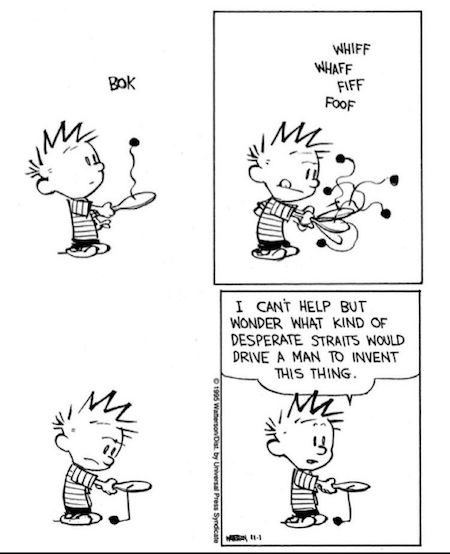

Support the Automatic Earth in virustime, election time, all the time. Click at the top of the sidebars to donate with Paypal and Patreon.



